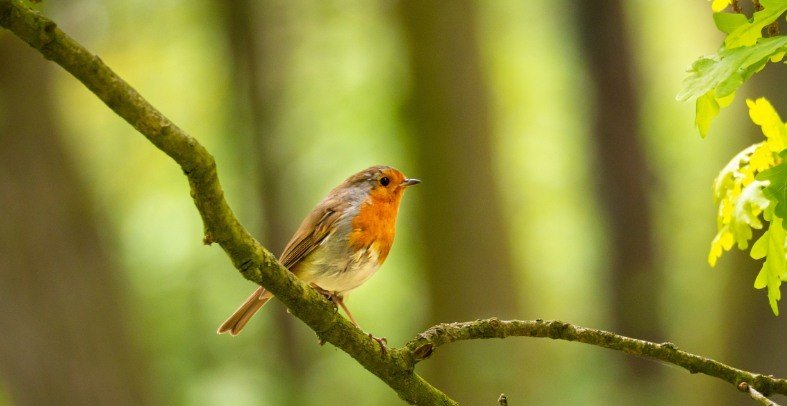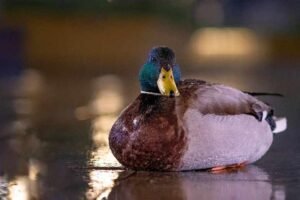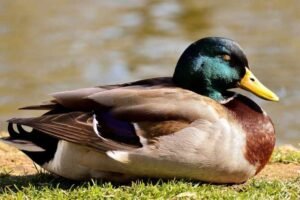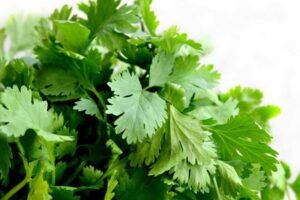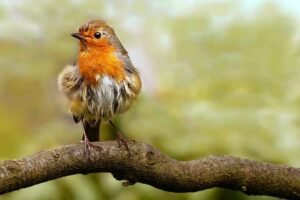Birds are natural food seekers regardless of the season. Fortunately, they have an easy time finding food throughout the spring and summer. Here’s your complete guide to feeding birds in spring and summer.
Lets Begin With Our Guide to Feeding Birds in Spring and Summer
Feeding birds is most helpful, especially when they need the most energy, for instance, during migration and temperature extremes.
Should I Feed Birds All-year round?
It is not mandatory. The majority of birds do not need help in feeding during the summer. When they are rearing and nesting their young ones, most birds focus on eating insects, which means feeding is less necessary during such times.
It is also crucial for young birds to learn how to seek naturally occurring food. Therefore, take a break from filling the feeders in summer. The goldfinch and hummingbird are the exceptions to this rule. It is advisable to provide nyjer seeds to the goldfinch until the thistle goes to seed. The hummingbird has a high metabolism, which means you can feed it nectar to fuel its metabolism rates.
What Bird Feeds Should I Offer?
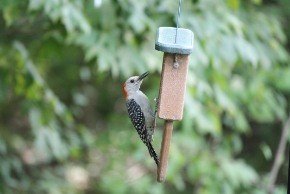
During summer, you can provide the nectar and Nyjer seeds for the hummingbirds and goldfinch, respectively.
During spring, the best advisable option would be fruit, baked and crushed eggshells, and nesting materials, for instance, pet fur, human hair, bits of yarn or string, and minimal strips of clothes to assist nesting birds.
No products found.
Other common bird feeds that can be offered all year round include; black oil sunflower. It is the most popular bird seed, which attracts a variety of birds to your ground feeders. Black-oil sunflowers during the spring and summers are best for finches, blue jays. Sparrows, chickadees, cardinals, nuthatches, among more.
If your ground feeding area is a hotspot for orioles, oranges are the go-to options. Slice an orange into half and place it on a platform feeder. You can also feed it different variations of fruits like grapes or cherries. Fruits come in handy for birds and humans, especially during the summer.
Safety Tips for Feeding Birds in Spring and Summer
Experts advise that everyone should take precautions when feeding birds during all four seasons.
5 tips for feeding birds safely in the summer;
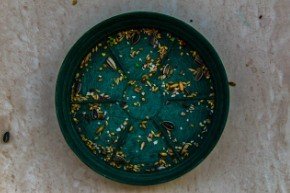
- Keep your seeds dry. Hot and humid summer weather leaves room for mold growth. Select mold variations produce aflatoxin, which is dangerous to birds. Therefore, ensure you fill the feeders halfway in summer instead of brimming them, so the seeds don’t sit for long periods. Also, get rid of mold if you come across any.
- Move the feeders regularly. Concentrating bird droppings and seed hulls under a feeder can result in a salmonellosis outbreak. It is a bacterial sickness that can affect birds. Moving your bird feeders regularly around the feeding areas prevents build up in one area.
- Clean the feeders regularly. Experts recommend thorough cleaning at least once in two weeks to keep them appealing and healthy to your avian guests. You can use a dishwasher on a hot setting. You can also use soap and boiling water or using a dilute bleach solution. Most importantly, ensure you thoroughly rinse and dry before refilling.
- Place suet in the shade. Packaged suet can also spoil or melt and foul the birds’ feathers in high heat. Keep suet in a cool space, or opt for a hummingbird feeder in summer.
- Stay ahead of potential predators. Black bears’ population is currently on the rise. Unfortunately, they pose a threat to your seed stockpiles. Ensure you are informed of potential bear problems in your locality. If necessary, take the feeders down during summer to avoid black bear invasions.
What Time Should I Feed Birds During Spring and Summer?

There is no set time to feed birds, and this varies between birds. For instance, cardinals are early feeders, while goldfinches will show up at your feeders later in the day.
Weather plays a huge role in feeding times for birds. When it is sunny and warm in the spring or summer, the best time for feeding would be in the morning.
Conclusion
Feeding birds is a favorite activity for some. It is even nicer during the summer when it is warm and sunny. Unfortunately, during these two seasons, most birds are off fending for themselves. If you are lucky to attract birds during the spring and summer, ensure you know what to feed them and how to do it appropriately.
Why not join the “big garden birdwatch” in January?
Last update on 2023-07-31 / Affiliate links / Images from Amazon Product Advertising API

